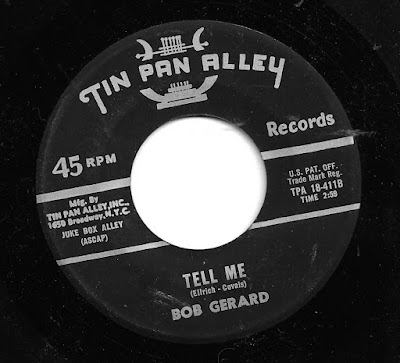When a song-poem shows up for sale or auction with a title as ridiculous as "I Love My Little Red Nose Rabbit the Best", the chances are - always - that the actual recording will be a let down. That's absolutely usually the case. But I went for it anyway and was delighted to win the auction at a low price and no other bidders.
It is, as you've no doubt guessed, an Easter-themed record. And Sammy Marshall, under the frequently used name Sonny Marcell, is the performer. And I think that's almost all I'll say, as I'd like you to experience all aspects of this 85 second masterpiece for yourselves. I'll only say that Sammy gives it his all, and never for a moment sounds like he's contemptuous of the material. Here 'tis. Happy Easter.
Download: Sonny Marcell - I Love My Little Red Nose Rabbit the Best
Play:
Incidentally, this song was copyrighted on May 18th, 1964, and song-poet John Hansen clearly had big intentions for it, as he took out classified ads in at least three issues of Billboard Magazine in 1964 and 1965. Curiously, only one of those issue dates was before or anywhere near Easter in those years. Also please note that in one of those ads, Mr. Hansen was additionally plugging his song "I Hire a Monkey". Who wouldn't pay to hear that one?
The flip side is "My Love Letter Came From Paris", and like "Red Nose Rabbit", it just featuring Sammy and a pianist (as stated in those ads, by the way). The narrated part of this record in the middle has some marvelously lyrical phrases, such as "In the state of New Jersey", "Every time I see long, cold winters", and "annual rainfall". In fact, that entire section is one clunky phrase after another, to the point (at least for me) of hilarity. Oh, and don't miss the end of the sung sections, where we learn that receiving a letter from Paris reminds him of.... their time together in Paris.
Incidentally, I'd like to dedicate this post to Sammy Marshall - real name Marc Simpson, as I learned only recently that Sammy Marshall/Ben Tate/Sonny Marcell/Marc Simpson/Etc.... died five years ago, in May of 2018. Here is his obituary.
Download: Sonny Marcell - My Love Letter Came From Paris
Play:






